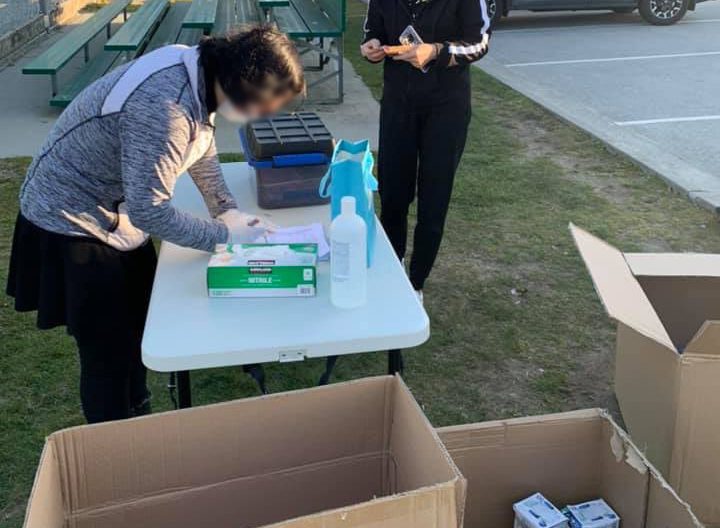The B.C. government announced sweeping new rules Wednesday to crack down on private stockpiling and profiteering off of essential goods during the novel coronavirus pandemic.

“These measures will help end hoarding at our grocery stores and the shameful black market for medical supplies,” said Public Safety Minister Mike Farnworth.
“(This is) making sure our essential service workers, including health workers, have every resource available that they need with their incredible efforts in caring for all of us.”

Under a number of dramatic new orders, British Columbians are no longer permitted to resell food, medical supplies, cleaning supplies or personal protective equipment such as masks and gloves.
The measure will also restrict the quantity of such goods that consumers can purchase.
The province said it will work with retailers and suppliers to enforce the quantity restrictions.

Get daily National news
Police will be able to enforce the anti-resale regulations, and the BC Prosecution Service will be able to lay charges.
B.C.’s Emergency Program Act allows for penalties of up to a year in jail, a $10,000 fine, or both.
B.C. declared a state of emergency on March 18 to unlock new powers to deal with the COVID-19 pandemic.

Other significant orders made Thursday were the creation of a new supply-chain coordination unit and the ability for municipal bylaw officers to enforce the bans on restaurant closures and large gatherings, and make arrests or issue fines if needed.
B.C. has declared a provincial state of emergency four times in the last 22 years, all of them related to wildfires.
- Conservatives set to table non-confidence motion Tuesday. What to expect
- After controversial directive, Quebec now says anglophones have right to English health services
- Conservatives table non-confidence motion to try to topple Trudeau
- Canada ‘absolutely’ eying proposed U.S. ban on China’s auto tech: Freeland









Comments